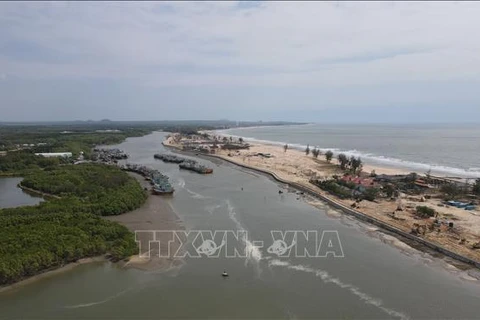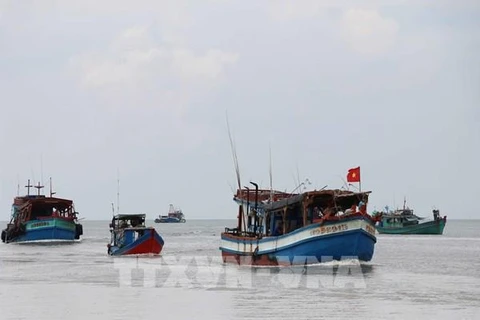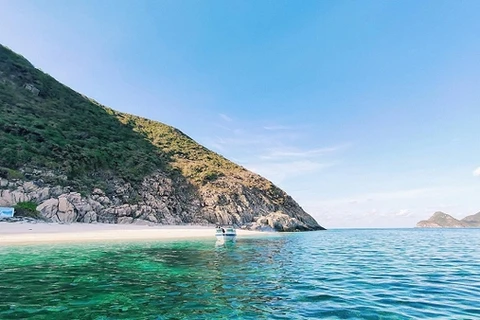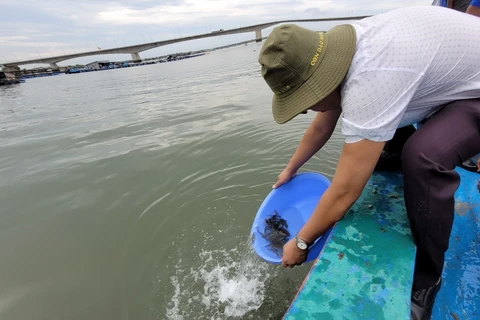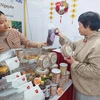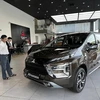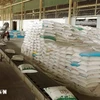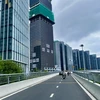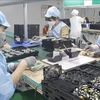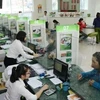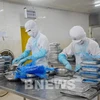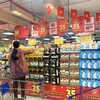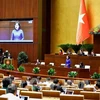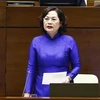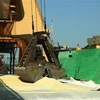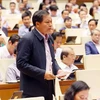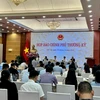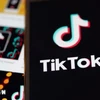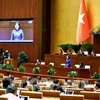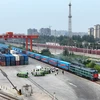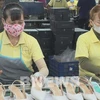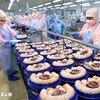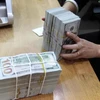 There is more than 400ha of shrimp farms that use technological advances in Ba Ria - Vung Tau province. (Photo: www.vista.gov.vn)
There is more than 400ha of shrimp farms that use technological advances in Ba Ria - Vung Tau province. (Photo: www.vista.gov.vn) Ba Ria – Vung Tau (VNA) – The southern province of Ba Ria – Vung Tau is carrying out several policies and applying technological advances into production to develop aquaculture sustainably.
Nguyen Huu Thi, deputy head of the Fisheries Sub-Department under the provincial Department of Agriculture and Rural Development, said the provincial People’s Committee has issued a number of documents aimed at expanding aquaculture and reducing the aquatic exploitation at sea.
It is adjusting the fishery development planning scheme towards tightening the management and licensing of marine aquaculture, he said, adding that breeders are encouraged to use environmental-friendly materials and apply high technologies to enhance products’ value, serving exports targets.
“On April 1 every year, the sub-department releases fries and shrimps to help restore aquatic product resources and increase the number of species that have been over-exploited, thereby, creating an ecological balance,” Thi told the Vietnam News Agency.
With about 6,300ha of aquaculture, the province has launched a movement calling on people to take part in environmental protection including reducing plastic waste in aquaculture. Farmers are instructed to use new technologies in their production.
Phan Hoang Son, a farmer in Vung Tau city’s Long Son commune, said he has used high-density polyethylene (HDPE) floating cages and nets with anti-fouling coatings based on Norwegian technology to breed marine fish for several years.
The advantage of this technology is that cages made of HDPE plastic are highly resistant to chemicals and does not rust. In addition, it is easy to shape and not broken when encountering rough terrain, he said.
The cages can be placed in the sea far from the shore and with clean water, which prevents pollution and diseases, Son said, adding that their efficiency is 20 percent higher than traditional cages.
Industrial shrimp farming models have also expanded in the province. There is more than 400ha of shrimp farms that use advanced techniques and super-intensive farming methods. The model has a success rate of 90 percent and brought in higher efficiency than traditional methods.
Bui The Vuong, a resident in Long Dien district’s An Ngai commune, said he has 7ha of shrimp farming. He uses 1.5ha to farm and the rest to filter and treat wastewater.
Thanks to the application of high technology, he can harvest three to five shrimp crops a year, twice the number possible using traditional methods, he said.
The death rate of shrimp is lower and disease is minimised at the same time, Vuong said.
The area of aquaculture applying good agricultural practices has been gradually increased to 4.9 percent last year from 4.2 percent in 2020. The agriculture sector has set the goal of raising the rate to 5.5 percent this year.
In addition to developing sustainable aquaculture, the sector also focuses on guiding fishermen to exploit aquatic products in a sustainable way. Accordingly, attention will be paid to rearranging vessels towards reducing their number or granting licenses in line with the assigned quotas.
The agriculture sector is coordinating with relevant agencies to carry out many solutions to regenerate aquatic product resources and disseminate information to raise awareness and responsibility of local residents in protecting the resources.
It also encourages fishermen to upgrade and convert fishing boats with large capacity to exploit offshore fishing grounds as well as seek other resources to support the community in vocational training so that they can change jobs./.

